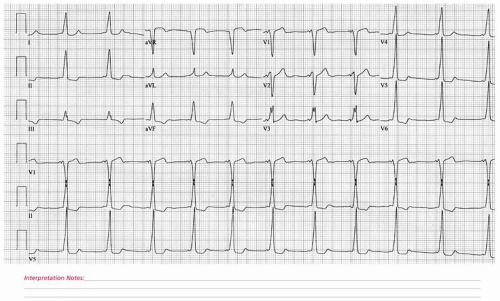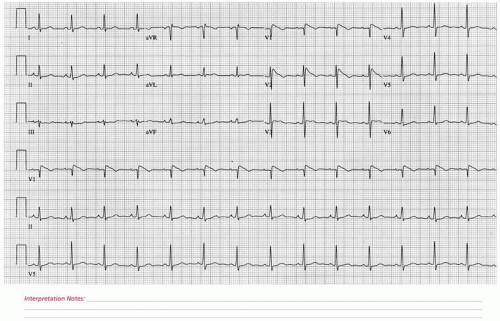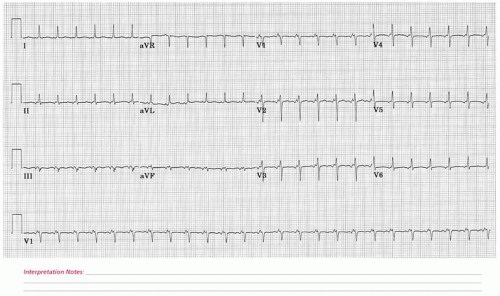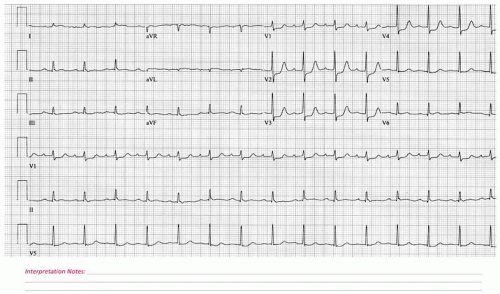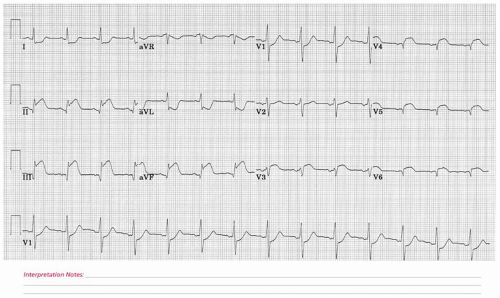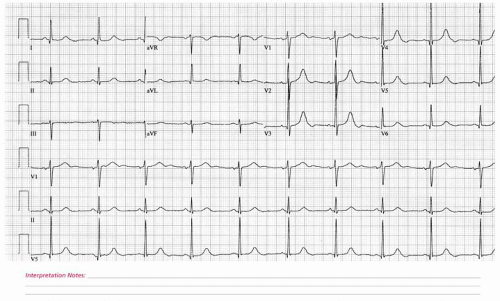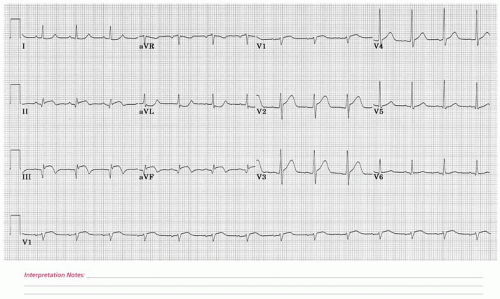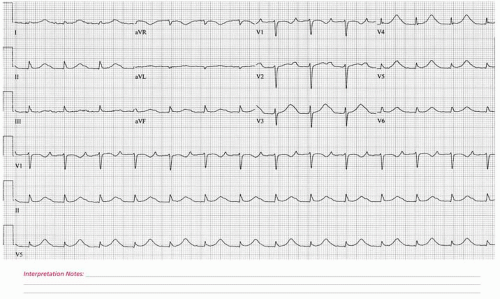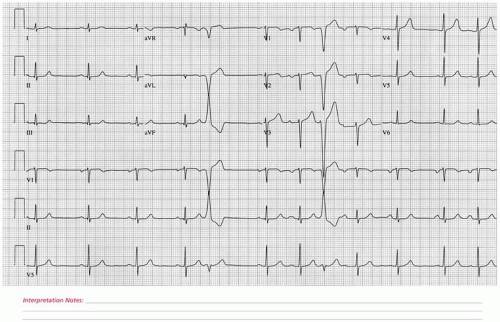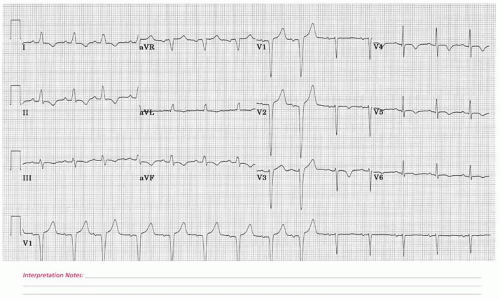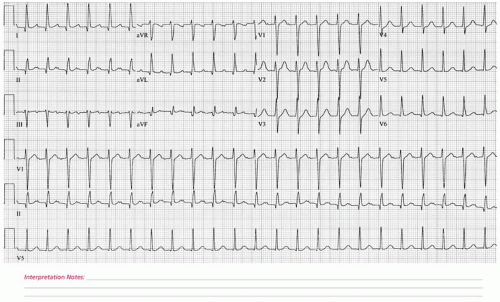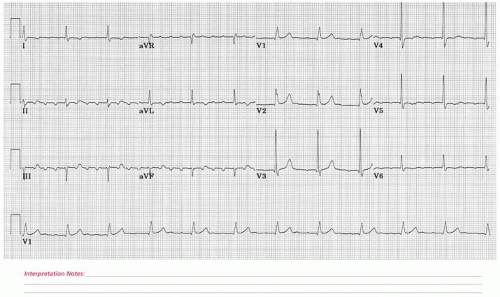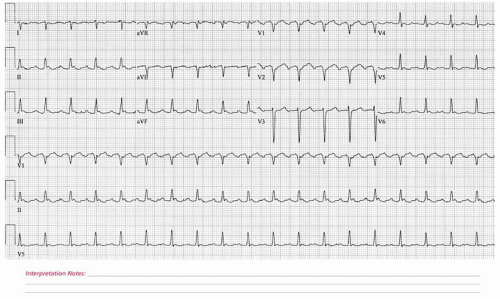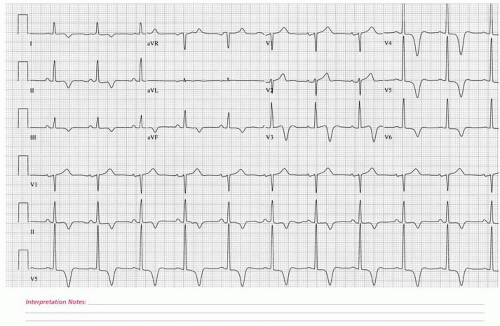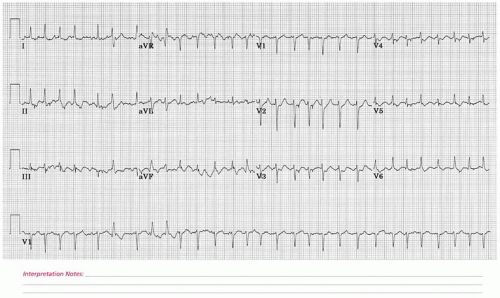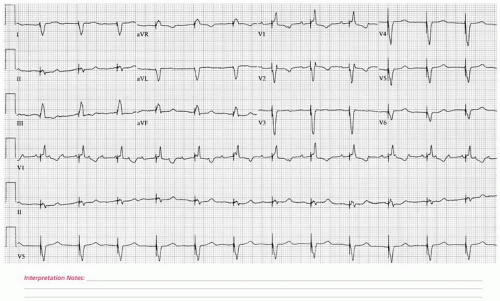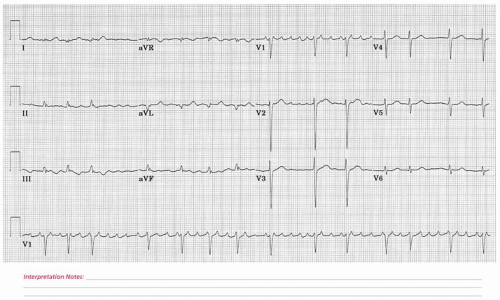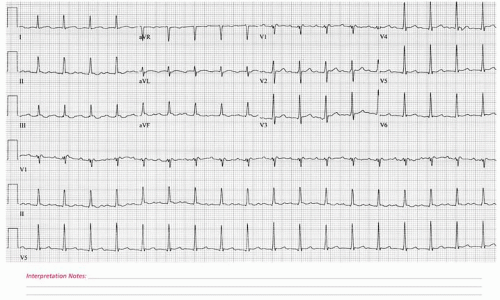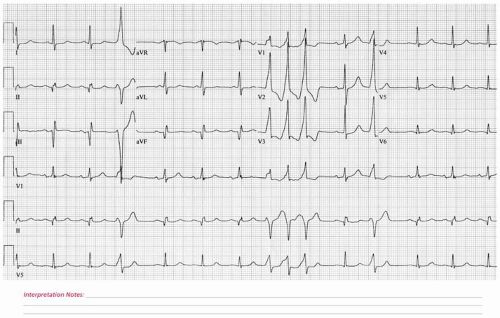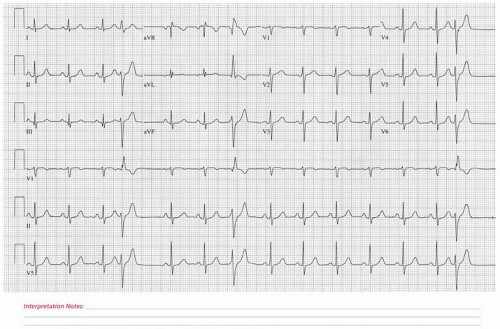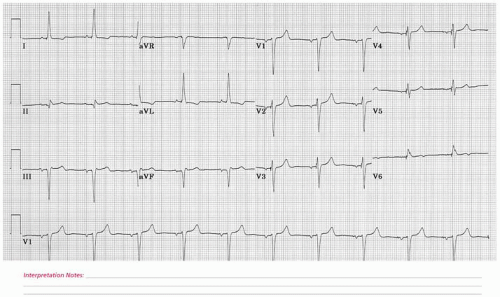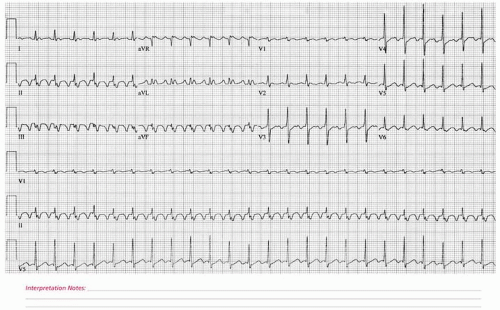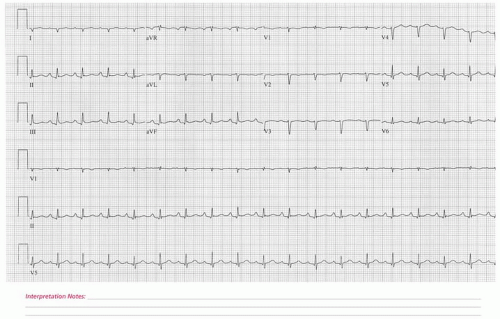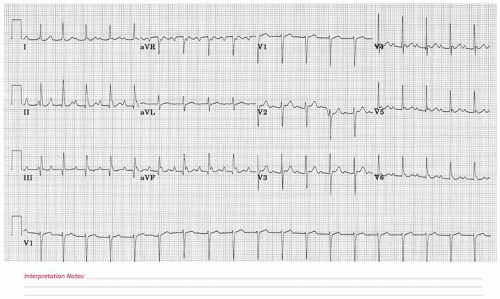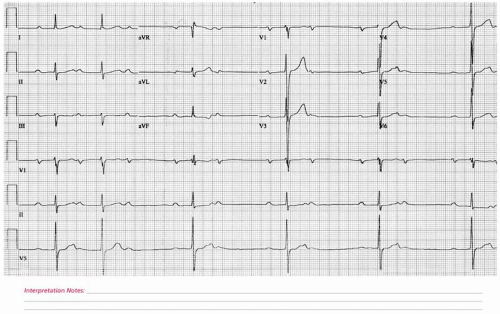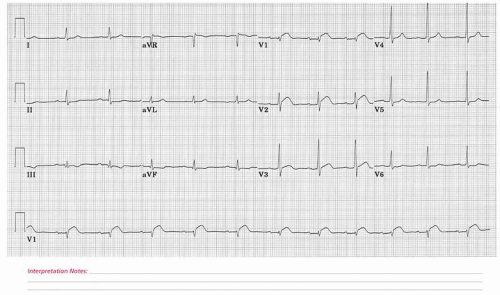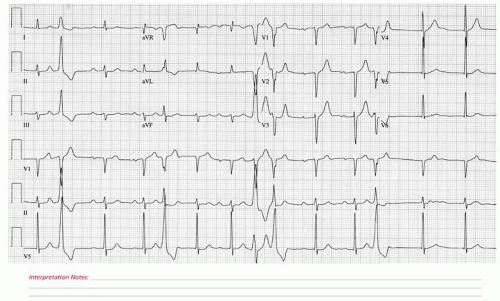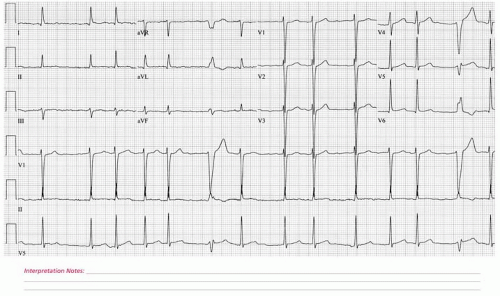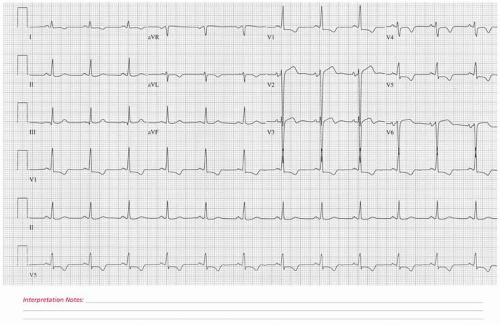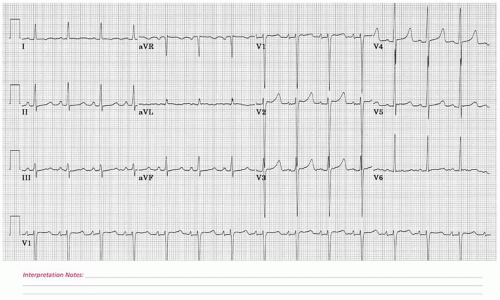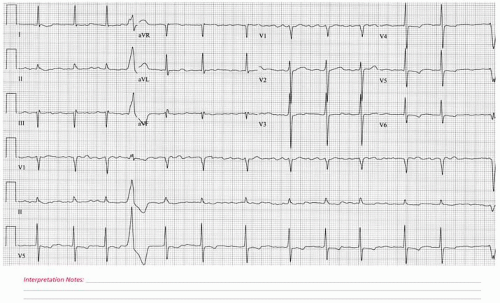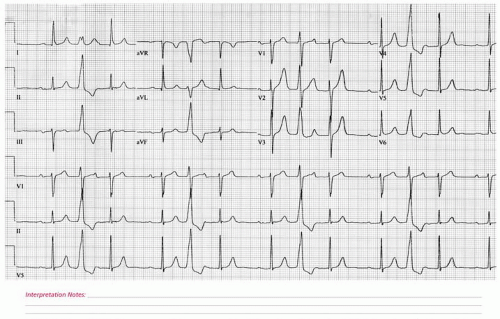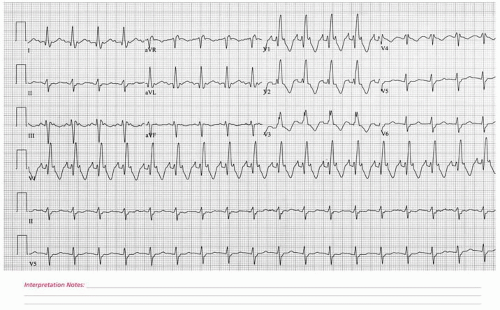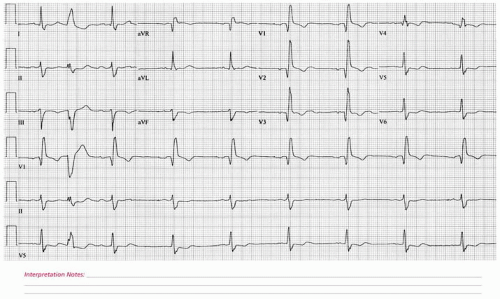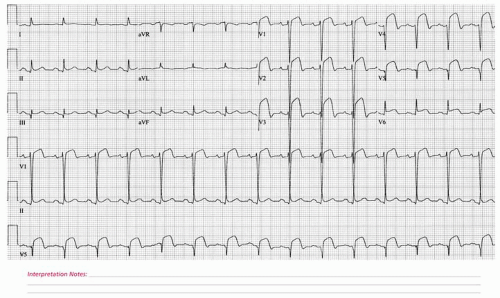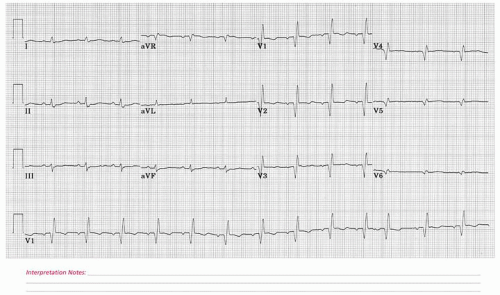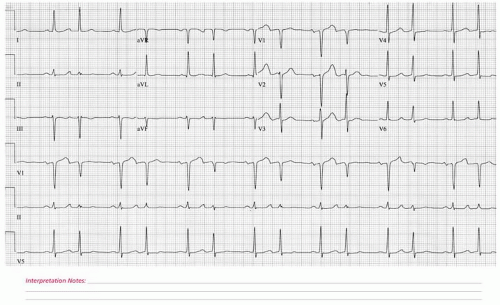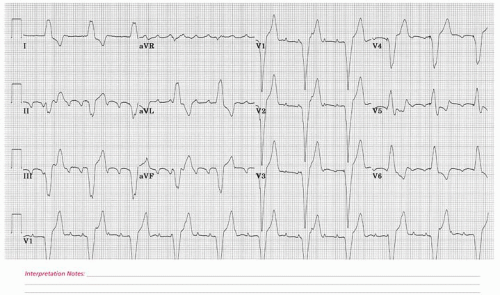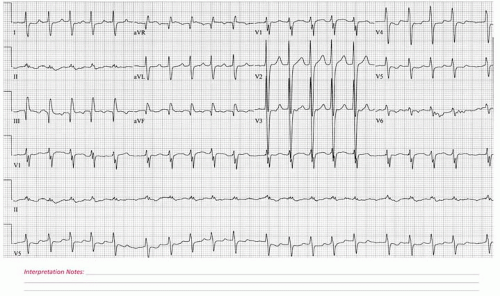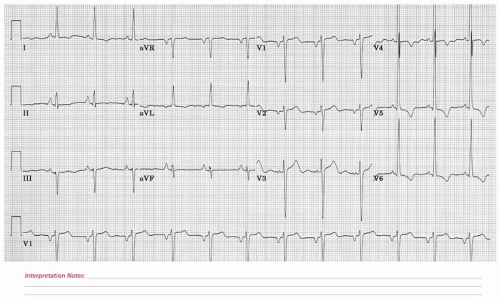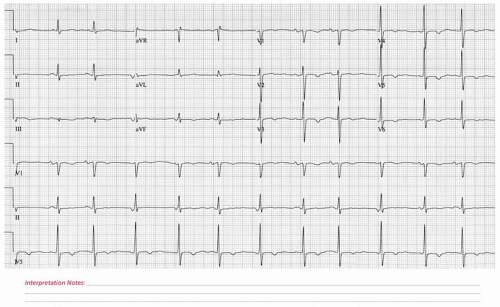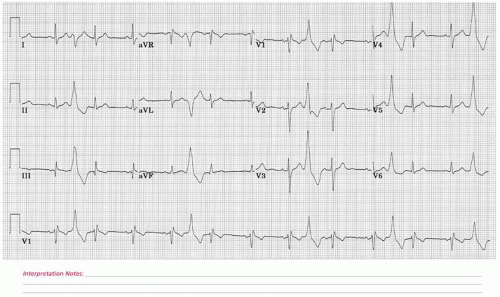Level 2
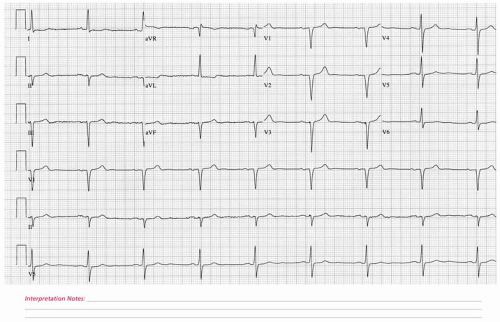 ECG 173 A 46-year-old male with a severe episode of anterior chest pain 2 weeks previously who presents to his physician with persistent shortness of breath. |
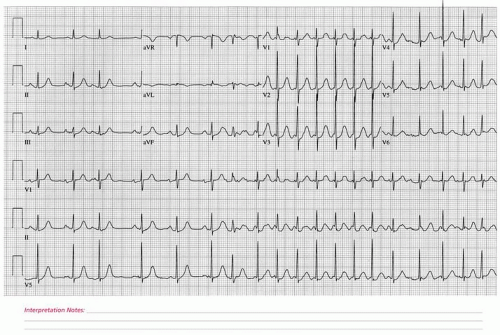 ECG 176 A 54-year-old female with intermittent palpitations and light-headedness for the past 6 months. |
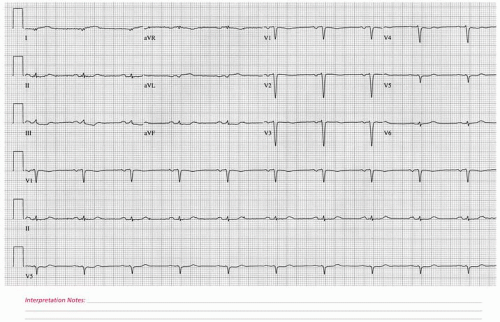 ECG 182 A 57-year-old male with the acute onset of severe anterior chest discomfort of 45 minutes duration. |
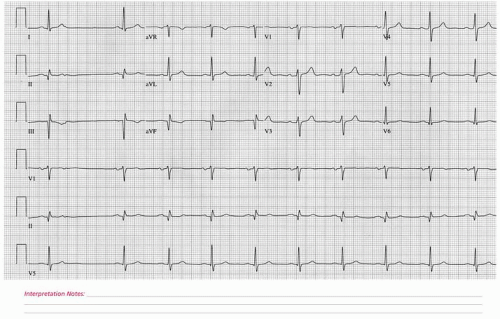 ECG 188 A 54-year-old male who presents for a follow-up cardiovascular medicine evaluation in the context of known coronary artery disease. He is feeling well at the present time. |
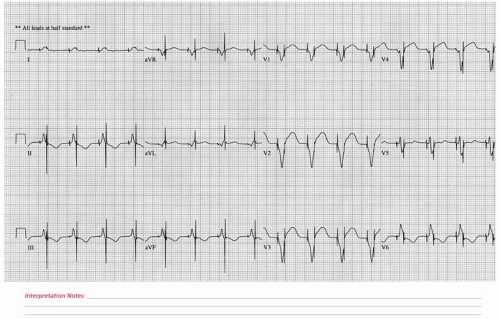 ECG 191 A 74-year-old male having undergone coronary artery bypass grafting surgery earlier the same day. |
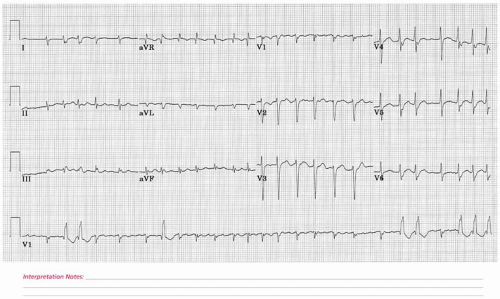 ECG 192 A 76-year-old male with laryngeal carcinoma admitted urgently to the hospital with upper airway bleeding and new-onset atrial fibrillation with a rapid ventricular response. |
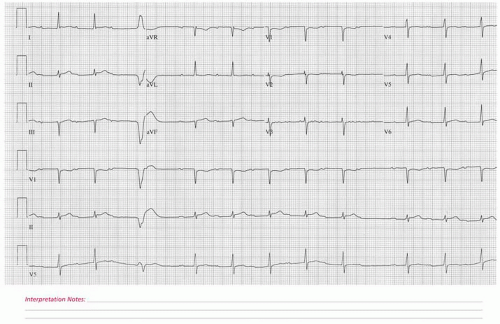 ECG 200 A 77-year-old male immediately postoperative mitral valve repair and coronary artery bypass grafting. The patient remains intubated in the surgical intensive care unit. |
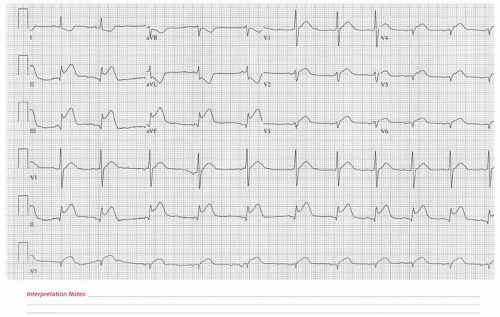 ECG 203 A 56-year-old male who presented to the hospital emergency room with severe anterior chest pressure of 1-hour duration. This electrocardiogram was obtained in the emergency room. |
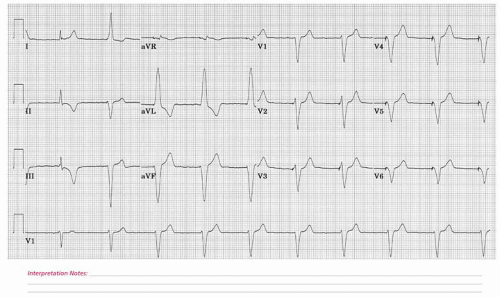 ECG 204 A 75-year-old male with a recent history of syncope and permanent pacemaker implantation. Comorbidities include chronic atrial fibrillation and past coronary artery bypass graft surgery. |
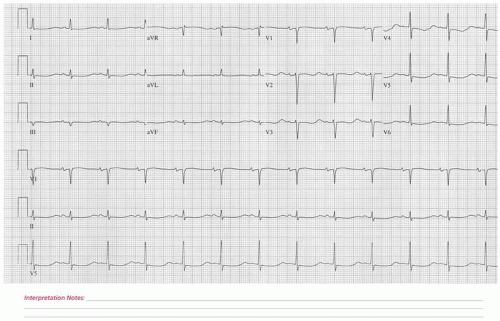 ECG 209 A 66-year-old female with lung cancer undergoing chemotherapy who is acutely hospitalized with nausea, vomiting, and severe dehydration. |
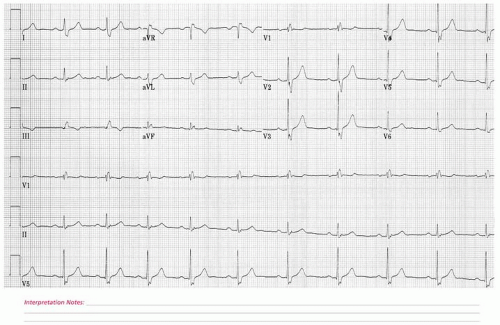 ECG 210 A 40-year-old male with a history of “an enlarged heart” since a young age who seeks a cardiac evaluation. A prior echocardiogram demonstrated evidence of Ebstein’s anomaly. |
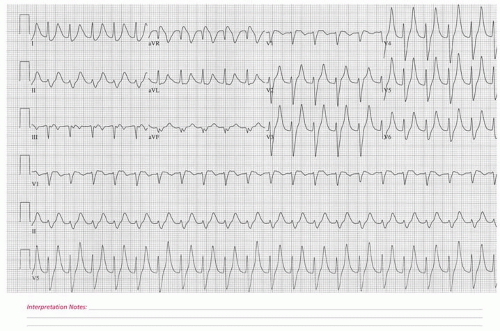 ECG 215 A 54-year-old male with dialysis-requiring end-stage renal disease admitted to the medical intensive care unit after presenting to the hospital with acute delirium. |
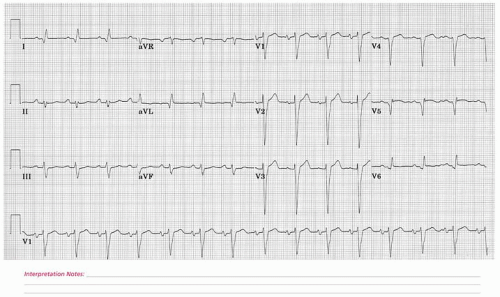 ECG 216 A 48-year-old male with multiple prior myocardial infarctions who was admitted recently to the hospital with severe congestive heart failure. The patient subsequently expired. |
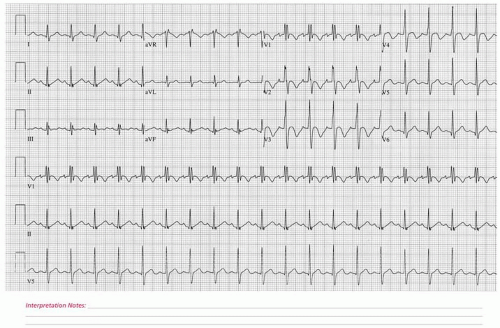 ECG 218 A 16-year-old male admitted to the hospital with a cerebral hemorrhage due to an arteriovenous malformation. He subsequently expired. |
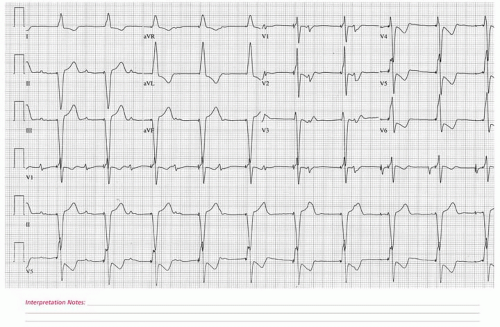 ECG 221 An 85-year-old male with intermittent chest pain and shortness of breath. He underwent permanent pacemaker placement 5 years prior to this electrocardiogram. |
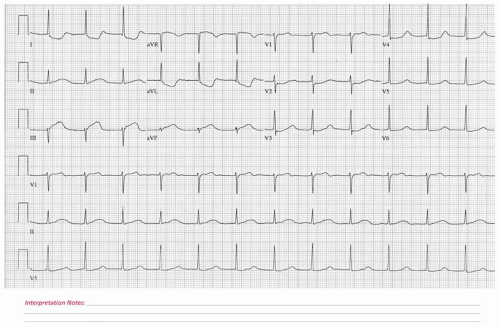 ECG 224 A 62-year-old female with sudden-onset severe chest discomfort and diaphoresis of 90 minutes duration. She was directly admitted from the emergency room to the coronary intensive care unit. |
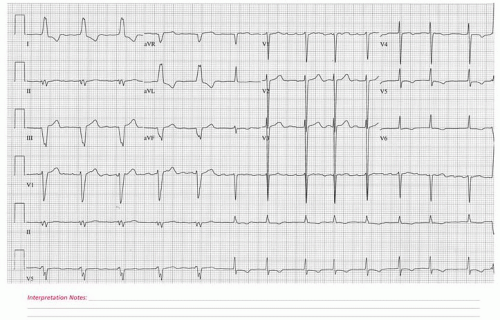 ECG 227 A 79-year-old female with intermittent palpitations who is seen preoperatively prior to near-future foot surgery. |
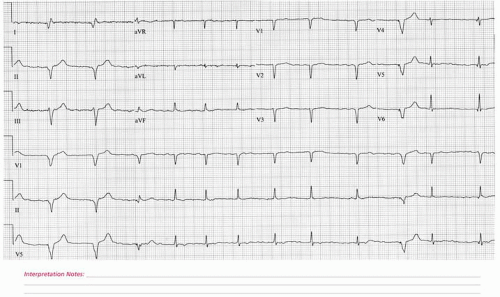 ECG 229 A 74-year-old female with advanced coronary artery disease, severe ischemic left ventricular systolic dysfunction, and complete heart block, status post permanent pacemaker implantation, who is admitted to the hospital in acute decompensated systolic congestive heart failure. At the present time, the patient is resting comfortably after receiving several doses of intravenous diuretics, demonstrating significant clinical improvement since her hospital admission.
Stay updated, free articles. Join our Telegram channel
Full access? Get Clinical Tree
 Get Clinical Tree app for offline access
Get Clinical Tree app for offline access

|
